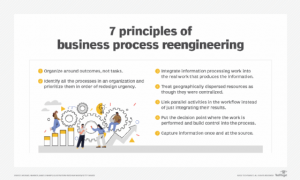
To begin with, DevOps is a combo of cultural philosophies, practices, and tools. This combination helps an organization in increasing its ability to deliver applications and services at high velocity. In addition, DevOps facilitates communication, integration, automation, and close cooperation among all the people of a team. Moreover, it also has uses in planning, developing, testing, deploying, releasing, and maintaining a Solution.
The DevOps lifecycle
There are various phrases in the DevOps lifecycle and each phrase represents the development and operations. In addition, this lifecycle allows teams to collaborate and communicate with each other. This helps in improving alignment, velocity, and quality in the development process. To further know about it, one can visit DevOps Online Training in Dubai. Given below are the phrases of the DevOps life cycle.
- Development- It includes planning and coding of the software by adopting agile practices to improve speed and quality. In addition, it helps in project management and software development and allows teams to break work into smaller pieces for delivering incremental value.
- Integration- This is the software development practice stage and developers commit changes to the source code more frequently in this stage. In addition, this stage includes unit testing, integration testing, code review, and packaging and it facilitates early detection of problems.
- Testing- This phrase includes continuous testing for bugs in the software. In addition, it requires various testing tools such as TestNG, JUnit, Selenium, and many more for automation testing of software. Moreover, these tools ensure that there is no flaw in the functionality of the software.
- Monitor and alert- It involves all the operational factors of the entire DevOps process. These operational factors record and process important information about the use of the software. In addition, this approach is helpful in finding out the trends and identifying problem areas.
- Feedback- It includes continuously developing the application development process by analyzing the results from the software operations. In addition, this phrase takes place between the operations and the development of the next version of the current software application.
What is KPI in DevOps?
KPI stands for Key performance indicators and it is a way to analyze software source code for gaining insight into the aspects of the development of a software system. In addition, these critical aspects of the development of a software system include team performance, time-to-market, risk management, failure prediction. Etc. KPIs are important for business objectives as they put the objectives at the forefront of decision-making. Given below are some of the most important DevOps Key Performance Indicators (KPIs) and metrics that you should measure.
- Velocity
- Deployment frequency
- Change volume
- Deployment by project, developer, etc.
- Mean Lead Time/Cycle Time
- Quality
- Change failure rate
- Build failure rate
- Automated tests failure rate
- Security
- Defect escape rate
- Vulnerability
- Code Smells
- Infra/container scans
Benefits Of Using DevOps
DevOps ensures faster development along with stabilizing the work environment. In addition, it improves product quality by facilitating collaboration between development and operation teams. Moreover, it promotes agility in your business and ensures transparency which leads to high productivity. Many institutes provide DevOps Online Training in Bahrain and one can enroll in them to start learning this practice. Given below are some of the benefits of using DevOps.
- Speed– Implementing DevOps in a team result in frequently releasing deliverables with better quality and high stability. In addition, it helps teams in building, testing, and delivering software with automated tools.
- Improved collaboration– The primary function of this technology is to enhance collaboration between developers and operations teams. In addition, it results in saving time-related to work handoffs and creating code and makes teams more efficient.
- Rapid deployment– It improves the product quality rapidly as it increases the frequency and velocity of releases. In addition, quickly releasing new features and repairing bugs results in providing the company a competitive advantage over competitors.
- Quality and reliability– It improves the quality of a software product by ensuring that the changes are functional and safe. In addition, it provides real-time updates with the help of monitoring.
- Security– DevOps makes products secure by integrating security audits & testing into agile development and DevOps workflows. In addition, it integrates security into continuous integration, continuous delivery, and continuous deployment pipeline.
Conclusion
DevOps is a combination of cultural philosophies, practices, and tools. Its lifecycle consists of a few phrases which are Development, Integration, Testing, Monitor, and alert & Feedback. It consists of various Key performance indicators KPIs that analyze software source code for gaining insight.






